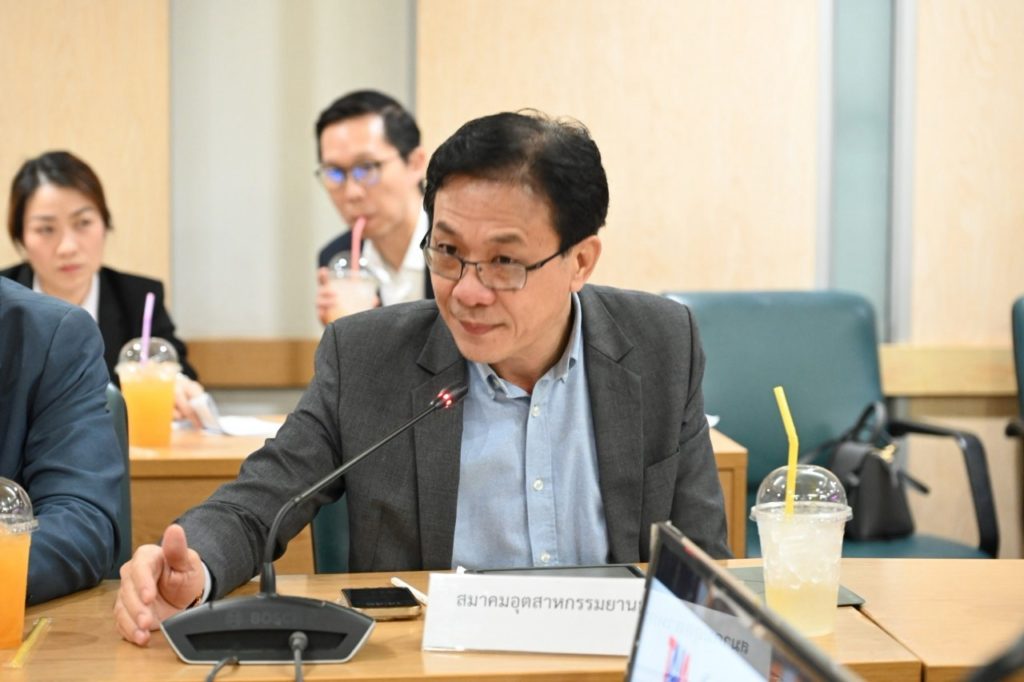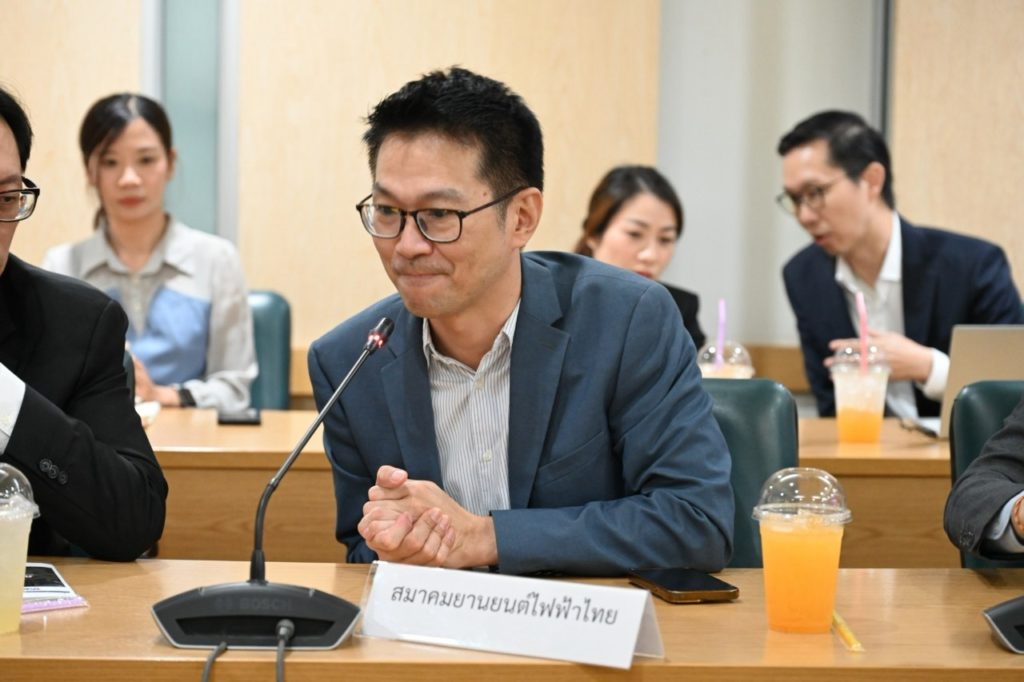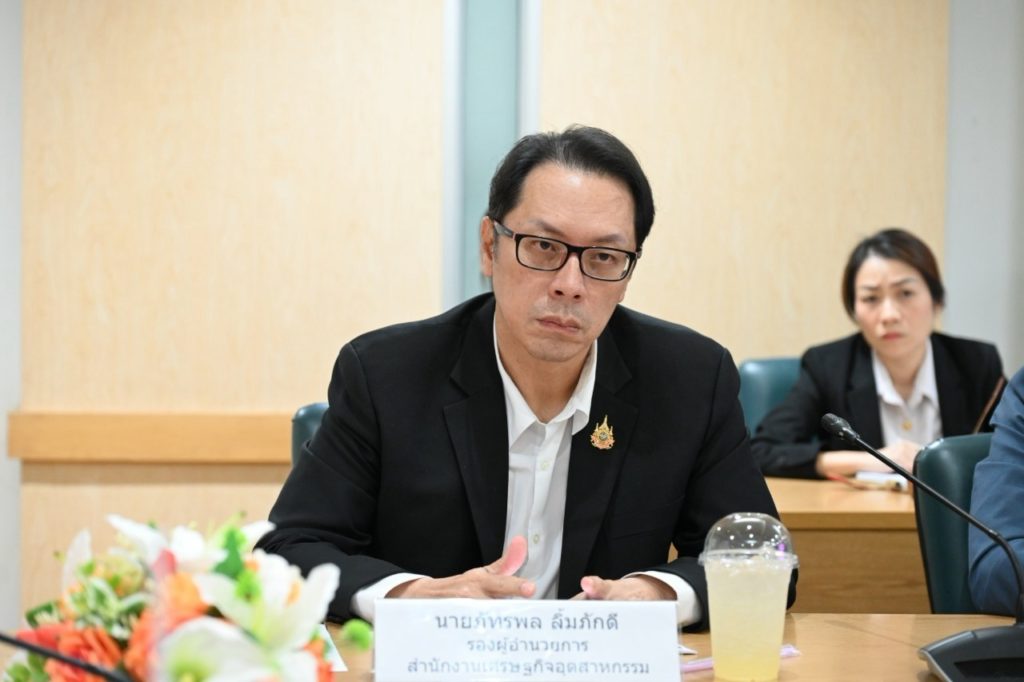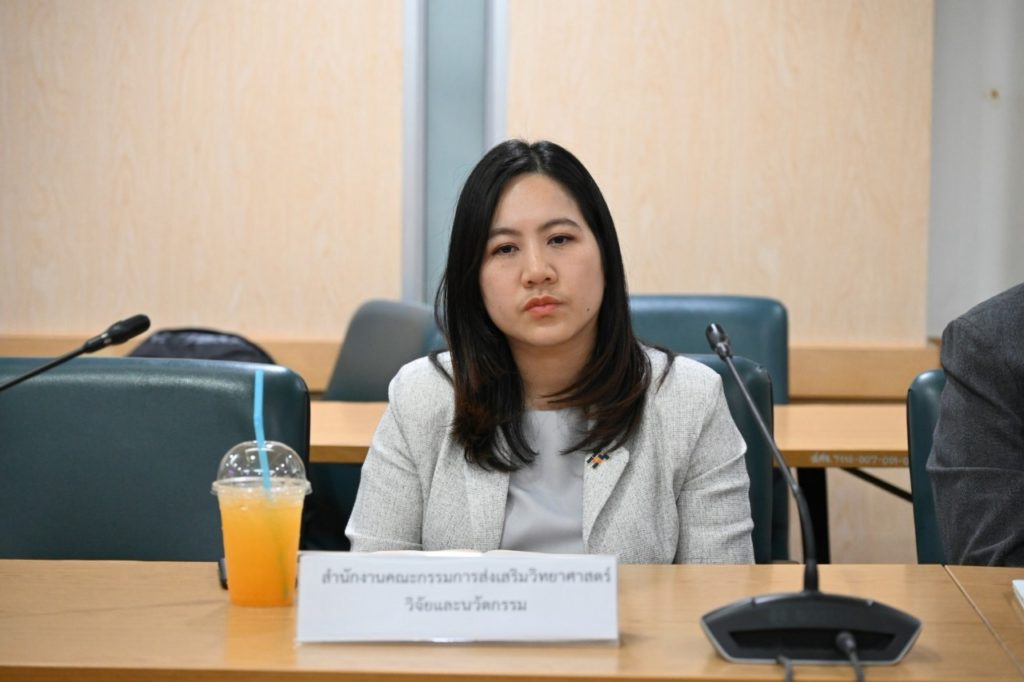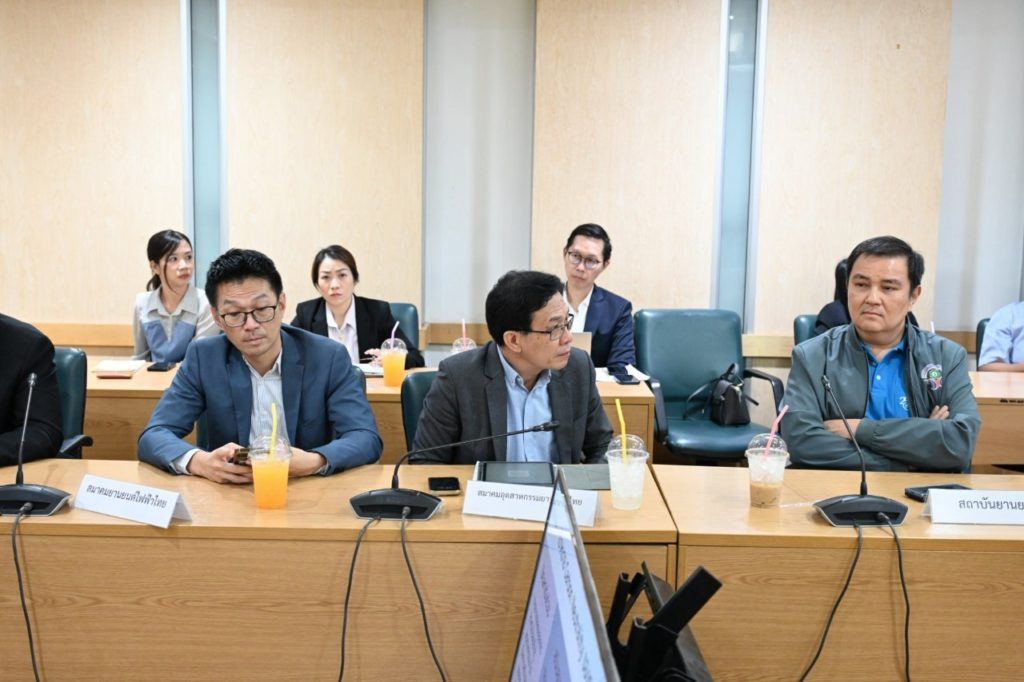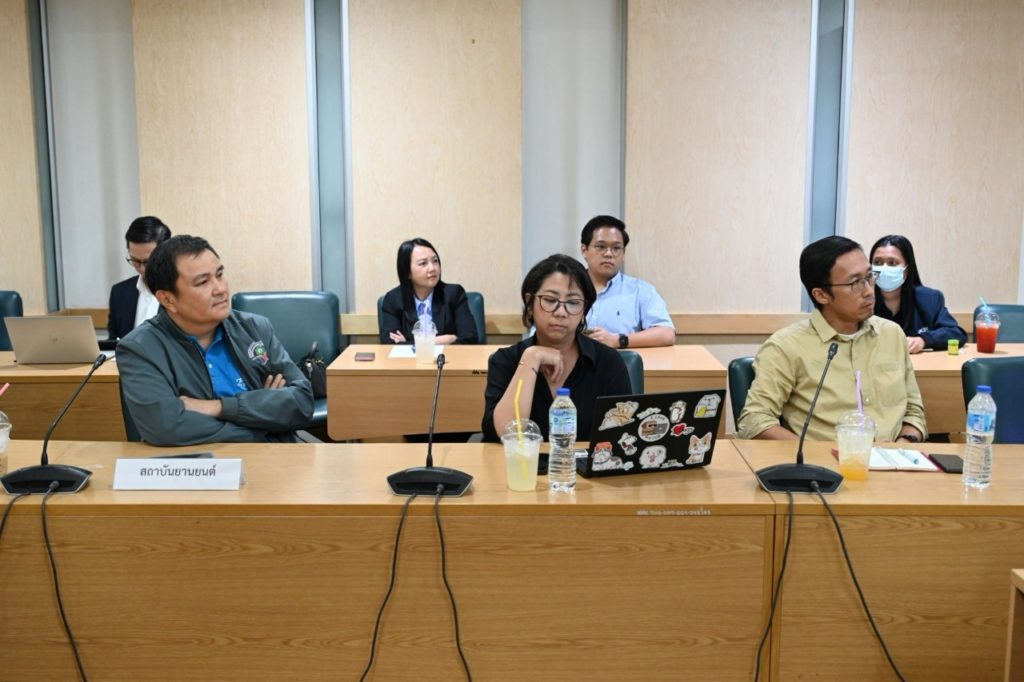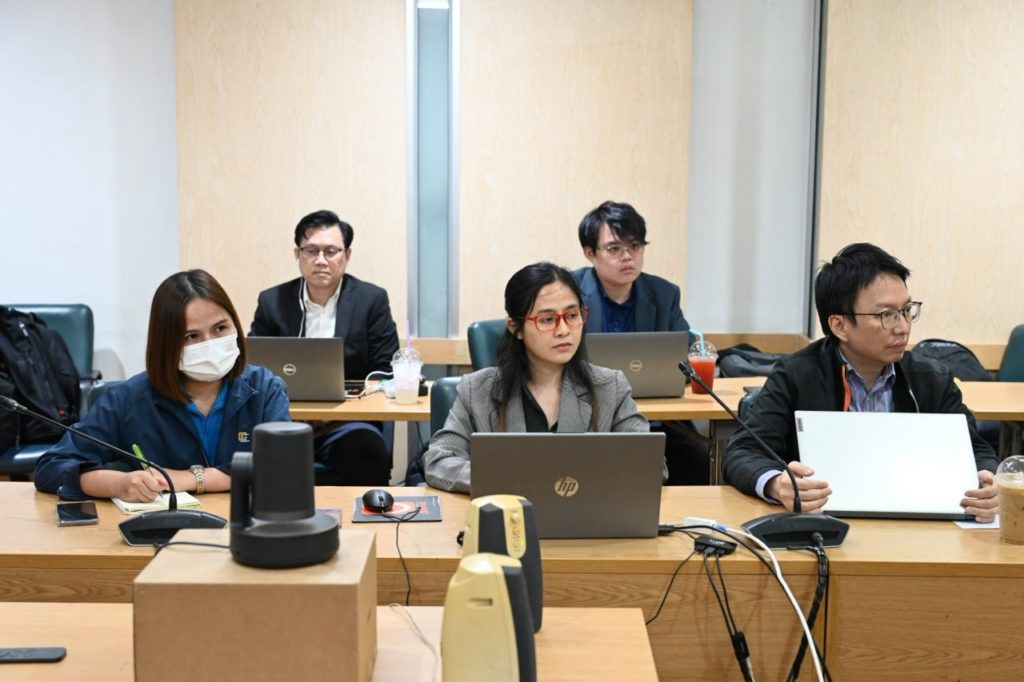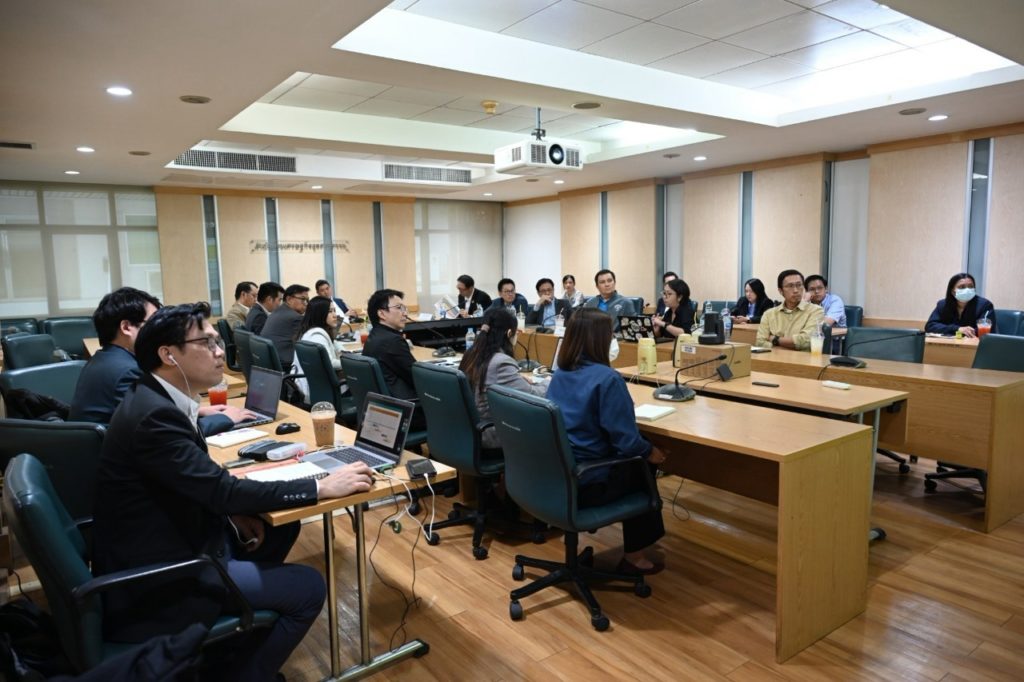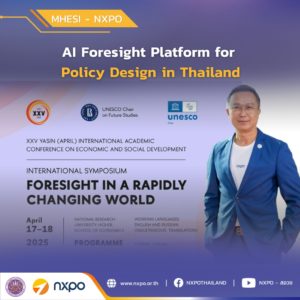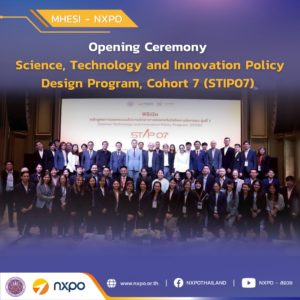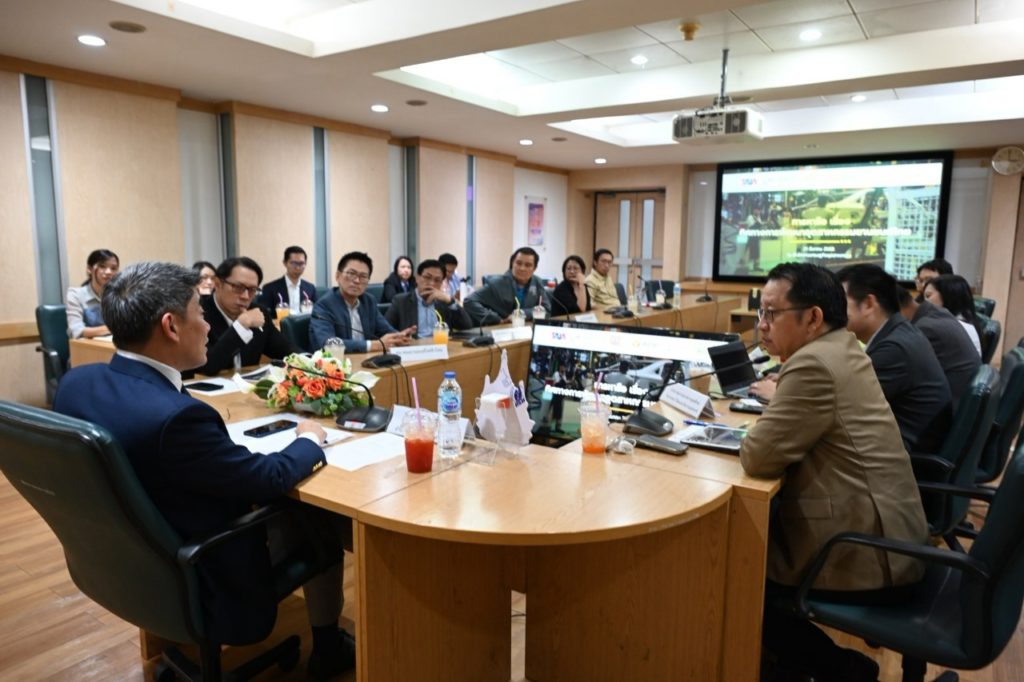
On 21 March 2025, NXPO met with Mr. Passakorn Chairat, Director-General of the Office of Industrial Economics (OIE), to discuss the future direction of Thailand’s modern automotive industry and explore collaboration between the Ministry of Higher Education, Science, Research, and Innovation (MHESI) and the Ministry of Industry. The NXPO delegation included Assoc. Prof. Wongkot Wongsapai, Vice President; Dr. Nuwong Chollacoop, Assistant to the President; and Dr. Thanakan Wongdeethai, Strategist 1. Representatives from Thailand Science Research Innovation (TSRI), the Thailand Automotive Institute (TAI), the Thai Automotive Industry Association (TAIA), Electric Vehicle Association of Thailand (EVAT), and Chulalongkorn University also participated.
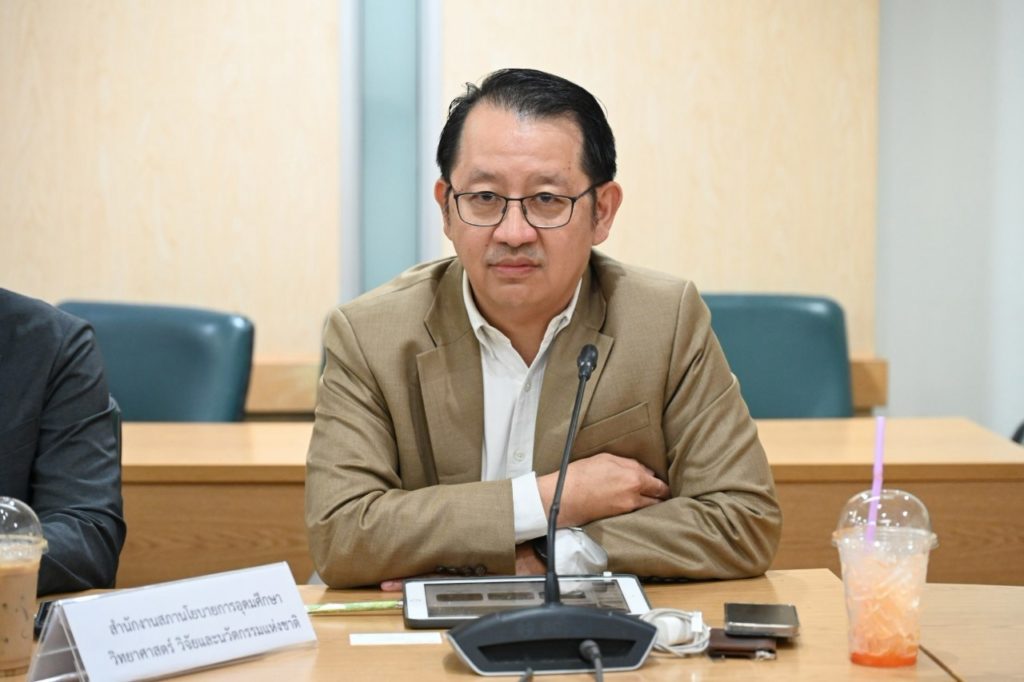
During the meeting, Dr. Wongkot outlined MHESI’s role in advancing Thailand’s automotive sector, particularly in the electric vehicle (EV) industry. The “MHESI for EV” policy consists of three key initiatives:
- EV-HRD – Workforce development for the EV industry
- EV-Transformation – Promoting EV adoption within MHESI-affiliated agencies
- EV-Innovation – Supporting research and development in EV technology
NXPO has been tasked with leading EV-HRD, aiming to upskill, reskill, and provide new skills to 150,000 individuals over five years while equipping 5,000 workers annually with expertise needed to support this industry’s transition.
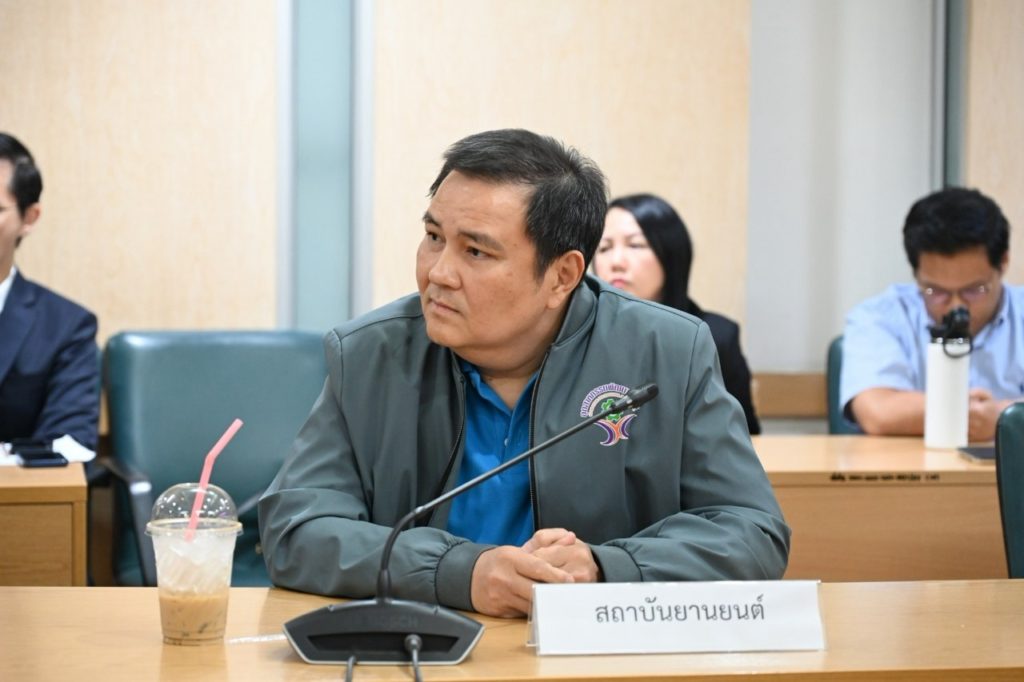
Dr. Kriengsak Wongpromrat, President of the Thailand Automotive Institute, discussed the strategic direction for developing Thailand’s automotive industry. He emphasized that Thailand has multiple pathways to achieve its 30@30 policy target and should adopt an approach that aligns with its industrial landscape.
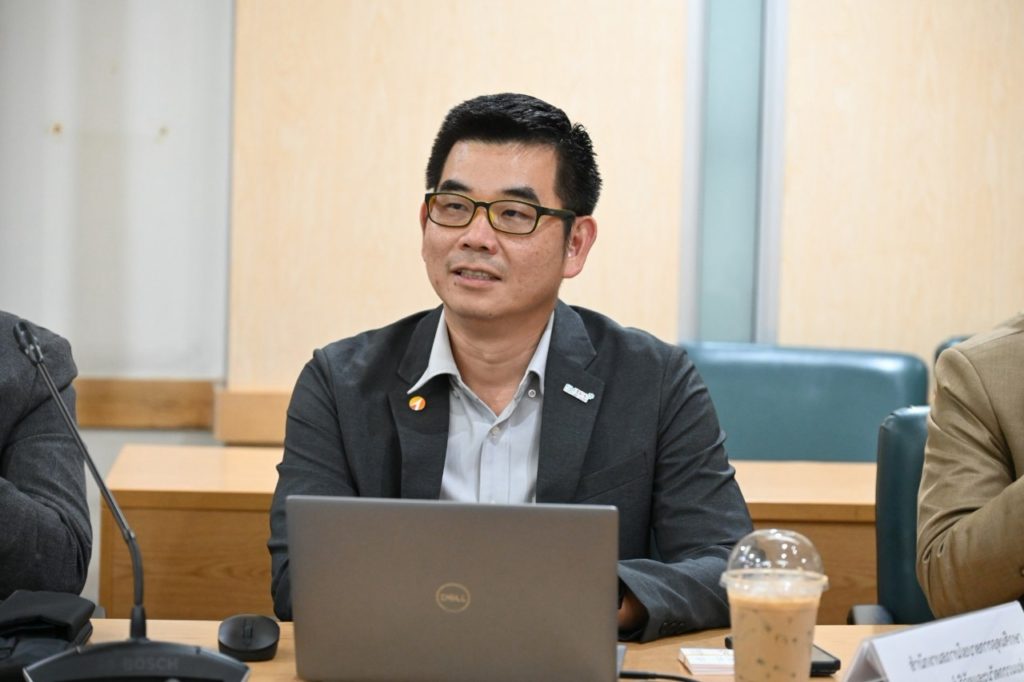
Dr. Nuwong elaborated on the development of the strategy and proposed areas of collaboration between NXPO and OIE, including the use of foresight tools to design a technology roadmap and establish technology prioritization to support policies for modern automotive development, particularly in EV-HRD.
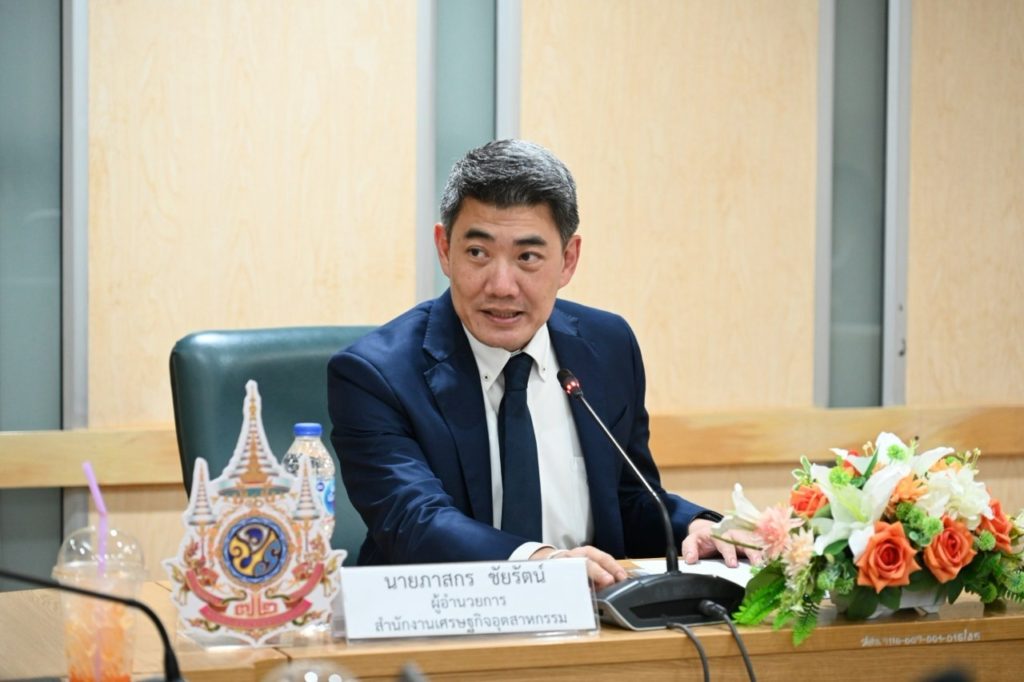
Mr. Passakorn underscored the need to consider various automotive technologies, including internal combustion engines, hybrids, EVs, and hydrogen-powered vehicles, to align with global industry trends. He also stressed the importance of engaging industry in workforce development to address skill demands across both conventional and emerging automotive sectors. Additionally, he highlighted the need to develop expertise in advanced automotive technologies, such as software development, autonomous driving systems, and other innovations, to prepare Thailand for the future of mobility—especially Software-Defined Vehicles (SDVs).
